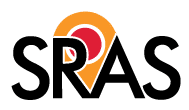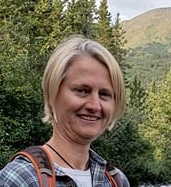Over 2014-2015, SRAS made two fundamental strategic decisions. The first was to expand our geographic footprint, beyond the former USSR and into Central Europe. The second was to focus more deliberately on the support of faculty-led programs. Really these decisions go hand-in-hand as we develop programming in Central Europe that really complements what we have been offering for so many years already in Russia, Central Asia, Ukraine, and the Caucasus.
What does this part of the world – for purposes of geography let’s call it the stretch of Eurasia from Berlin to Vladivostok – have to offer? If we go beyond the obvious cultural or linguistic studies, we not only have an incredible range from political and economic options to art and music and everything in between, but more importantly this region offers different perspectives on traditional subjects and global issues. These perspectives are born due to the location’s unique place in history, stage of development or transition, and even conflicting geopolitical or cultural-social objectives. This region presents unique opportunities for comparative study and reflection and we try to integrate this into our programming.
This is also a challenging region. It is challenging because there is little or even misleading information about it. It is challenging due to political tensions and areas of conflict. It is challenging because there are so many other destinations more familiar to students. Thus, additional efforts are needed to get students to step beyond their comfort zone – going abroad at all is just the first step! Those are the challenges we love. We very purposely choose to work in a region where we can add value through information, creativity, and networking.
SRAS has spent over 20 years creating, promoting, and supporting educational programming in a place that in that same span of time has been in a state of continual change. Not that the rest of the world has remained static – far from it. But a part of the world in rapid transition demands a certain ability to think quickly, see opportunities, and most importantly, build a network of people and organizations. And the result is an ability to work with students and educators alike to create unique opportunities in an exciting part of the world.
 Study Abroad – Warsaw and St. Petersburg
Study Abroad – Warsaw and St. Petersburg
Much of our focus over this past year has been the development of new programs based in Warsaw, Poland. After a successful launch of our Crossroads program in summer 2015, we have expanded it into a broader Security and Society Summer School with a fascinating range of courses. We are especially excited about the opportunities our students will have related to the NATO summit in Warsaw in summer 2016. We went into Poland with an early plan to develop security studies and we are very committed to this area of study. As we explore and create, we realize that so much is related to security and that by looking at society though this lens we immediately gain perspective on many other questions. We already see many more directions we can go with this and it is exciting to think of exploring these questions with students looking ahead to building careers with global impact.
I also strongly believe that anything related to security studies on the resume is a big plus. Regardless of the career you plan to pursue. From government to the private sector, an understanding of risk assessment and security concerns, be they economic, political, or cyber, is a valuable asset, and we are seeing a significant increase in the number of degree programs in this area, particularly at the graduate level. Undergrad students can leverage study abroad in this field for grad school applications as well as employment.
Our other primary focus of study in Poland is Jewish studies. Poland, because of its history, is a natural location for these studies, but equally important are the unique opportunities available to our students. Our programs are conducted in close cooperation with the new POLIN Museum of the History of Polish Jews and our students have extensive opportunities for internships.
Our second exciting challenge has been to fine tune our programming in St. Petersburg. This location has always been a challenge from the immersion standpoint. This is also noted by educators who support our efforts to try to get students to look beyond Moscow and St. Petersburg to more immersive environments. The problem is that St. Petersburg is a glorious city, full of museums, canals, parks, concert halls and there is only so much you can do to fight this allure. Large numbers of students (relatively speaking – this is Russia) will still gravitate to this city.

The challenges with immersion are numerous – but some of the more obvious are the greater density of English speaking foreigners and Russians alike in the city and the ease with which it is possible to slip into English.
We are very lucky in that we have been able to actively collaborate with our partner institution, St. Petersburg State University of Economics, to develop a solid offering for American students who are in need of a more intensive language program: Survival Russian orientation week, a mix of group and individual lessons, active language activities with Russians, and a capstone project now all come together to proactively engage the students with their environment in the local language.
Our St. Petersburg location is also host to our Russian Studies Abroad program in which students can select from over 30 electives taught in English. This combination of electives along with a very central location makes this opportunity unique in Russia – offering accessibility to students who do not currently study Russian.
Faculty-led Programs
We have recently updated and re-organized our online pages addressing faculty led programs to inspire you to take on this challenge and opportunity to lead students to this part of the world – and to make the process less intimidating. We provide support ranging from the very basic (accommodations, visas, transport) to varying levels of academic and cultural programming, keeping in mind budget and the desired level of involvement of the group leader. We want to share with you the wealth of experience we have gained in working with students visiting this region not simply as tourists but with the aim of really interacting with the people, the environment, and the culture. We love the challenge of pulling our available resources together to support unique educational programming.
Visit our Faculty-Led Programs page to learn more about the how, where, what, and why. Contact us to learn more about the process and how we can make it something you look forward to doing – more than once.


 Study Abroad – Warsaw and St. Petersburg
Study Abroad – Warsaw and St. Petersburg